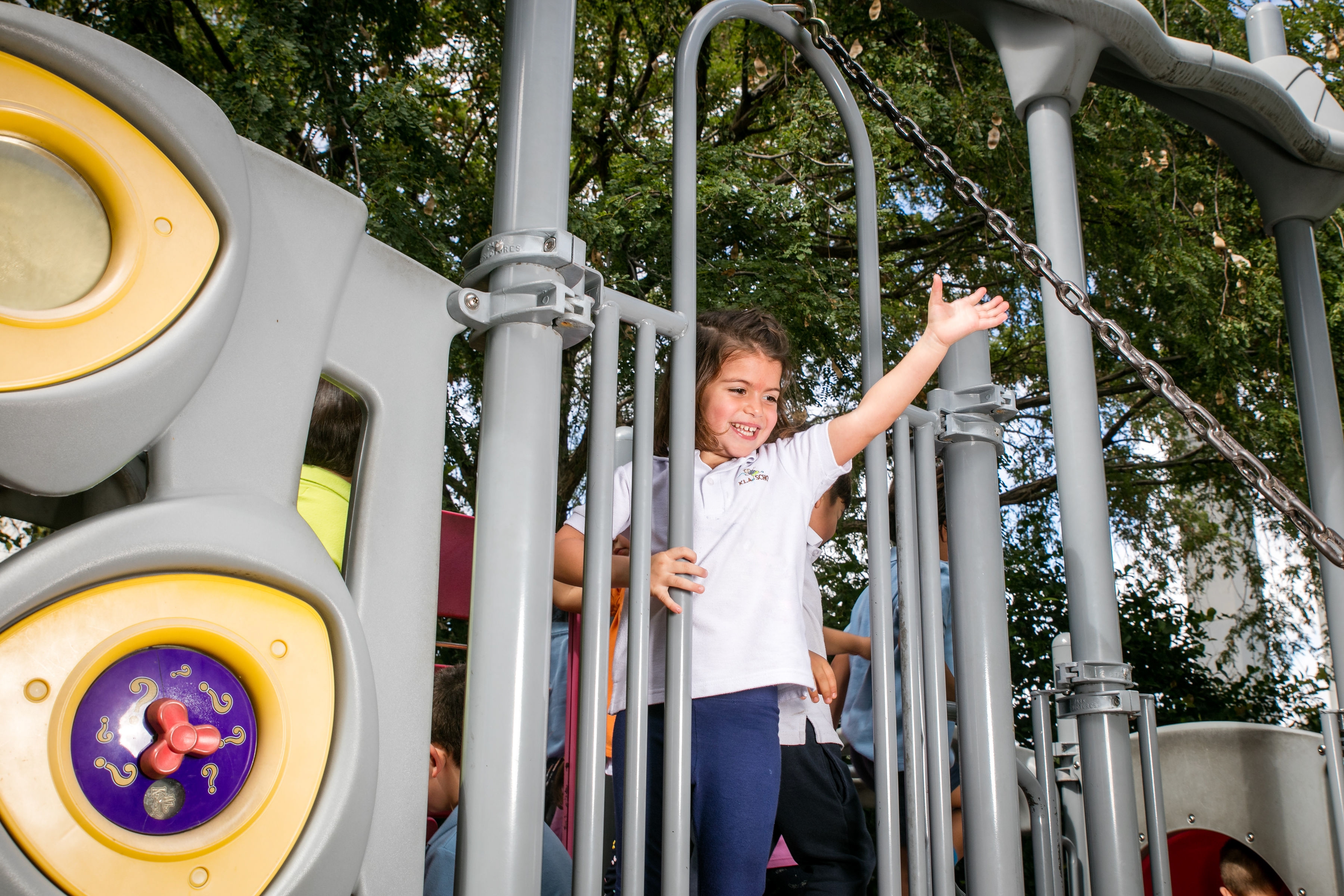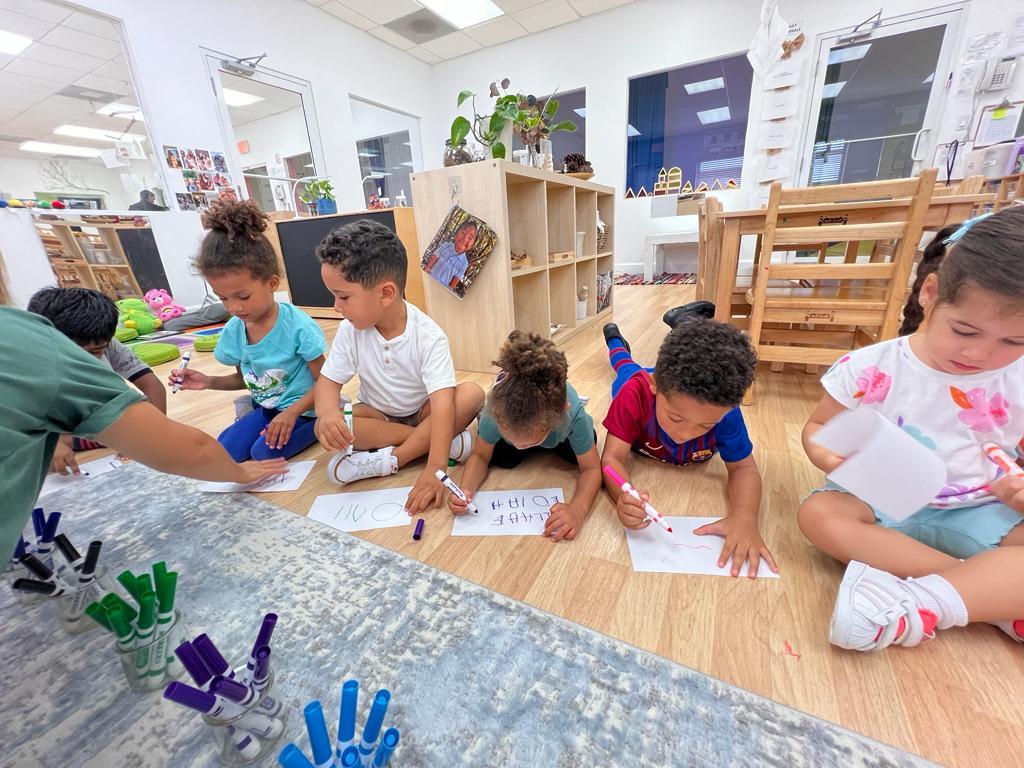Choosing A Daycare: 28 Essential Questions to Ask Before Enrolling Your Child
Topics: School Life
Age Range: Preschool
Here are 28 essential questions to ask when choosing a daycare and detailed answers to help you assess each option thoroughly. From safety protocols and caregiver qualifications to daily routines and communication policies, these questions will ensure you gather all the necessary information to make the best decision for your child’s well-being and development.
Caregiver & Staff Quality
1. What is the staff-to-child ratio?
Ratios vary by state, but a good benchmark is 1:4 for infants, 1:6 for toddlers, and 1:10 for preschool-aged children. Lower ratios ensure better supervision and individualized care.
2. Are the caregivers and educators trained in early childhood education?
High-quality daycares require caregivers to have degrees or certifications in early childhood education and ongoing training in child development.
3. Do the caregivers encourage independent learning and curiosity?
Reputable daycares implement play-based and inquiry-based learning to help children explore their interests.
4. Will the same caregivers be with my child each day?
Stability is essential for child development. Ask about staff turnover and whether your child will have consistent caregivers.
5. How do you handle staff turnover and maintain consistency in caregiving?
Look for daycares emphasizing staff retention through good pay, benefits, and professional development opportunities.
6. How does your daycare support social-emotional development?
The best daycares integrate emotional intelligence lessons, encourage peer interaction, and provide guidance on conflict resolution.
Health, Safety, and Cleanliness
7. How often are the toys and equipment cleaned and sanitized?
High-quality centers follow strict cleaning schedules, disinfecting toys and surfaces daily.
8. What are your policies regarding illnesses?
Ask about sick policies, required vaccinations, and how they handle outbreaks of common illnesses.
9. What is your process for administering medication?
Most centers require written consent from parents and detailed record-keeping for administering medication.
10. How do you monitor the children and ensure their safety?
Cameras, security systems, and frequent headcounts are standard safety measures.
11. How do you screen visitors and manage security?
Good centers require sign-ins, background checks for staff, and locked doors with restricted access.
12. What are your emergency procedures for fires, earthquakes, or other incidents?
The center should have well-documented evacuation and emergency plans with regular drills.
Daily Activities & Learning Approach
13. How long do children spend outside each day?
A good daycare prioritizes outdoor time for at least an hour daily, weather permitting.
14. What is your curriculum, and how do you assess a child’s progress?
Look for centers that follow research-backed curriculums like Montessori, Reggio Emilia, or play-based learning.
15. Why are your offered activities chosen?
Activities should be age-appropriate and designed to develop cognitive, motor, and social skills.
16. How do you teach literacy, math, and critical thinking skills?
Daycares teach foundational skills through storytelling, songs, puzzles, and interactive play.
17. Do you offer exposure to music, dance, or art?
High-quality centers integrate creative arts into daily activities.
18. Do you provide before and after-school programs?
Many centers offer extended care programs for working parents.
19. How do you support children in developing problem-solving skills?
Through open-ended questions, role-playing activities, and guided learning experiences.
Dietary Accommodations & Meals
20. Can you accommodate special diets or allergies?
Good daycares work with parents to provide allergen-free meals and special dietary accommodations.
21. Can I see a sample weekly menu?
Look for centers that offer nutritious, balanced meals with plenty of fruits, vegetables, and whole grains.
22. Are meals and snacks provided? If so, are they nutritious and balanced?
Many daycares provide meals, but you should verify that they meet dietary guidelines for young children.
Behavioral Policies & Parental Involvement
23. How do you handle conflicts between children?
Conflict resolution should be based on positive reinforcement, modeling, and guiding children to resolve disputes peacefully.
24. What are your discipline policies?
Look for policies focused on teaching rather than punishment, such as redirection and positive reinforcement.
25. Can I drop in at any time to observe my child?
Transparency is key; reputable centers allow parents to visit unannounced.
26. How can I be involved in daycare activities or decision-making?
Look for centers encouraging parental involvement through meetings, volunteer opportunities, and open communication.
Additional Enrichment & Philosophy
27. How do you accommodate differing cultural practices and children with special needs?
Centers should have inclusive policies, multicultural activities, and trained staff for children with special needs.
28. How does your daycare incorporate play-based learning and exploration?
The best daycares foster learning through open-ended play, interactive experiences, and guided discovery.
Why KLA Schools Stand Out as a High-Quality Daycare Choice
KLA Schools is an excellent option if you're looking for a high-quality daycare that fosters creativity, independence, and critical thinking. Inspired by the Reggio Emilia approach, KLA Schools emphasize child-led learning, where children are encouraged to explore their interests through hands-on experiences in a nurturing and stimulating environment. Our Reggio Emilia-inspired curriculum promotes curiosity, collaboration, and problem-solving skills, allowing children to develop a strong foundation for lifelong learning. With experienced educators who serve as facilitators rather than instructors, KLA Schools create an atmosphere where children feel empowered to express themselves, engage in meaningful projects, and develop a love for discovery. Additionally, our classrooms are thoughtfully designed with natural materials and open-ended resources to inspire creativity and exploration, making learning a truly engaging and enriching experience.
Here’s why KLA Schools is an excellent choice for parents:
- Innovative learning environment: KLA Schools create an engaging, curiosity-driven atmosphere that supports early childhood development.
- Highly qualified teachers: The teachers are trained in child development and use a research-based approach to nurture young minds.
- Safety and security: Each school prioritizes the safety and well-being of every child with strict security policies.
- Personalized learning: Children’s unique interests and strengths are incorporated into their daily learning experiences.
- Parental involvement: KLA Schools believe in strong partnerships with parents and encourage active participation in the child’s education journey.
Ready to Choose the Best Daycare for Your Child?
Choosing a daycare is a big decision, but you can find the perfect fit for your child with the right approach and a well-prepared list of questions. To make an informed choice, focus on safety, caregiver qualifications, learning philosophy, and parental involvement.
By carefully evaluating your options, you can select a daycare that provides a secure environment and fosters your child's growth, creativity, and happiness.
Take your time, schedule visits, and ask the right questions—your child’s future learning experiences depend on it!

